

| Cruise Region : South America / Antarctica |
| Company : Oceania Cruises |
| Ship : Marina |
| Journey Start : Tue 17 Mar 2026 |
| Journey End : Tue 07 Apr 2026 |
| Count Nights : 21 night |
| Day | Date | Port | Arrival | Departure |
|---|---|---|---|---|
| 1 | 17.03 Tue | Rio de Janeiro / Brazil | ||
| 2 | 18.03 Wed | Rio de Janeiro / Brazil | 13:00 | |
| 3 | 19.03 Thu | Day at sea / Sea | ||
| 4 | 20.03 Fri | Day at sea / Sea | ||
| 5 | 21.03 Sat | Recife / Brazil | 07:00 | 15:00 |
| 6 | 22.03 Sun | Day at sea / Sea | ||
| 7 | 23.03 Mon | Day at sea / Sea | ||
| 8 | 24.03 Tue | Day at sea / Sea | ||
| 9 | 25.03 Wed | Alter do Chao / Brazil | 13:00 | 20:00 |
| 10 | 26.03 Thu | Valeria Village Mouth / Brazil | 07:00 | 15:00 |
| 11 | 27.03 Fri | Manaus / Brazil | 09:00 | |
| 12 | 28.03 Sat | Manaus / Brazil | 16:00 | |
| 13 | 29.03 Sun | Parintins / Brazil | 10:00 | 18:00 |
| 14 | 30.03 Mon | Santarem / Brazil | 07:00 | 15:00 |
| 15 | 31.03 Tue | Day at sea / Sea | ||
| 16 | 1.04 Wed | Day at sea / Sea | ||
| 17 | 2.04 Thu | Day at sea / Sea | ||
| 18 | 3.04 Fri | Castries / Saint Lucia | 11:00 | 17:00 |
| 19 | 4.04 Sat | Basseterre, Saint Kitts / Saint Kitts and Nevis | 07:00 | 14:00 |
| 20 | 5.04 Sun | Day at sea / Sea | ||
| 21 | 6.04 Mon | Day at sea / Sea | ||
| 22 | 7.04 Tue | Miami / USA | 07:00 | 17:00 |
Your World Included
With Your World Included, you’ll enjoy a wide array of included amenities for the ultimate comfort and value in ultra-premium cruising.
Unforgettable dining experiences at a variety of exquisite restaurants — all at no extra charge.
Complimentary specialty coffees, sodas, freshly pressed juices, and still and sparkling Vero Water® served throughout the ship.
Unlimited free Wi-Fi available in your suite, stateroom, and all public areas.
In-room dining with a superb variety of hot and cold selections.
Smoothies, milkshakes, gelato, and signature Humphry Slocombe ice cream — always included.
Group fitness classes at Aquamar® Spa + Vitality Center are complimentary.
Gratuities are included for your convenience.
Laundry is free for all guests.
With complimentary self-service launderettes on board, plus laundry and pressing services for Concierge and Suite categories, you’ll always look your finest.
Along with our hallmark personalized service, you’ll enjoy an enriching cruise experience with no hidden costs or nickel-and-diming.
Elevate Your Experience
Concierge Level Veranda Staterooms offer an unrivaled combination of luxury, privilege, and value. A wealth of amenities and exclusive benefits elevate your experience to the sublime — from in-room dining selections from The Grand Dining Room and complimentary laundry services to unlimited access to the Aquamar Spa Terrace.
On board Oceania Marina and Oceania Riviera, you’ll also enjoy the services of a dedicated Concierge and exclusive access to the private Concierge Lounge.
Located in the most desired areas of the ship, Concierge Level Veranda Staterooms are far more than just staterooms — they are an experience in themselves.
Concierge Level Veranda — Exclusive Privileges
Expanded in-room dining menu for lunch and dinner from The Grand Dining Room
Laundry service — up to 3 bags per stateroom
Exclusive key-card access to the private Concierge Lounge aboard Oceania Marina, Oceania Riviera, Oceania Vista, and Oceania Allura, featuring complimentary beverages, coffees, snacks, and the services of a dedicated Concierge
Welcome bottle of fine Italian Prosecco
Priority online reservations for specialty restaurants
Unlimited access to the Aquamar Spa Terrace
Oceania Cruises logo tote bag
Cashmere lap blankets — perfect for relaxing or snuggling
Pressing of garments upon embarkation
Complimentary shoeshine service
Deposit and Payments – Oceania Cruises
General Deposit:
For Owner’s, Vista, and Oceania Suites, a deposit of 20% of the cruise fare per person is required.
For all other suite/stateroom categories, the deposit is $500 per person.
For Grand Voyages, the deposit is $1,500 per person.
Deposit and Final Payment Deadlines:
Bookings more than 150 days from sailing:
Deposit 20% for Owner’s, Vista, and Oceania Suites and $500 for all other categories is required within 5 days of booking.
Bookings 90–120 days from sailing:
Full payment required within 3 days of booking.
Bookings 0–90 days from sailing:
Full payment due on the day of booking.
Important:
Bookings that are not deposited or paid in full according to this schedule will be automatically cancelled.
Unless otherwise noted, final payment must be received by Oceania Cruises 150 days prior to departure for cruises less than 15 days, and 150 days for cruises 15 days or longer.
Oceania Cruises reserves the right to cancel any booking not fully paid at the time of final payment.
Additional Information:
Passport details and special onboard service requests are due at final payment.
Payment may be made by personal check, American Express, Discover, MasterCard, or Visa.
For convenience, final payment may be automatically charged to the credit card used for the initial deposit.
Oceania Cruises is not responsible for foreign currency or transaction fees independently charged by issuing banks. These fees do not benefit Oceania Cruises.
Third-party credit card payments are accepted only with valid authorization from the cardholder.
Deposit and Payment – 180-Day Voyages
For 180-day voyages, a deposit of 20% of the cruise fare per person for all suites and staterooms is required within 7 days of booking.
Final payment must be received no later than 181 days prior to departure, along with passport details and any special onboard service requests.
Otherwise, the booking may be immediately cancelled, and applicable penalties will apply.
Oceania Cruises accepts payment for reservations by credit/debit card or bank transfer.
Unfortunately, personal checks are not accepted.
Credit/Debit Cards:
American Express, Visa, and Mastercard are accepted.
Please note: Oceania Cruises assumes no responsibility for foreign currency/transaction processing fees assessed by your issuing bank.
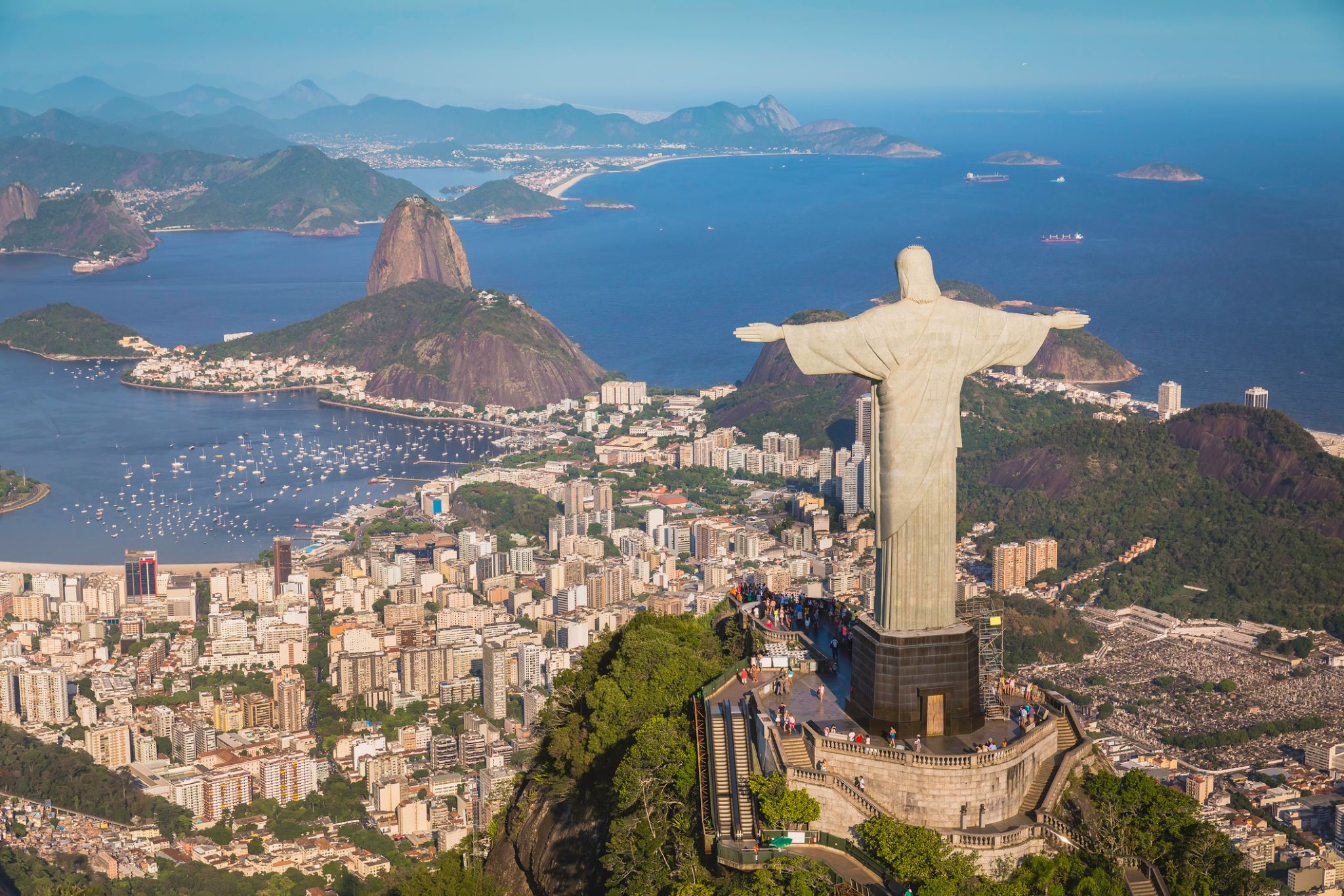
Rio de Janeiro is the second-most populous municipality in Brazil and the sixth-most populous in the Americas. The metropolis is anchor to the Rio de Janeiro metropolitan area, the second-most populous metropolitan area in Brazil and sixth-most populous in the Americas. Rio de Janeiro is the capital of the state of Rio de Janeiro, Brazil's third-most populous state. Part of the city has been designated as a World Heritage Site, named "Rio de Janeiro: CariocaLandscapes between the Mountain and the Sea", by UNESCO on 1 July 2012 as a Cultural Landscape.
Founded in 1565 by the Portuguese, the city was initially the seat of the Captaincy of Rio de Janeiro, a domain of the Portuguese Empire. Later, in 1763, it became the capital of the State of Brazil, a state of the Portuguese Empire. In 1808, when the Portuguese Royal Court transferred itself from Portugal to Brazil, Rio de Janeiro became the chosen seat of the court of Queen Maria I of Portugal, who subsequently, in 1815, under the leadership of her son, the Prince Regent, and future King João VI of Portugal, raised Brazil to the dignity of a kingdom, within the United Kingdom of Portugal, Brazil, and Algarves. Rio stayed the capital of the pluricontinental Lusitanian monarchy until 1822, when the War of Brazilian Independence began. This is one of the few instances in history that the capital of a colonising country officially shifted to a city in one of its colonies. Rio de Janeiro subsequently served as the capital of the independent monarchy, the Empire of Brazil, until 1889, and then the capital of a republican Brazil until 1960 when the capital was transferred to Brasília.

Rio de Janeiro is the second-most populous municipality in Brazil and the sixth-most populous in the Americas. The metropolis is anchor to the Rio de Janeiro metropolitan area, the second-most populous metropolitan area in Brazil and sixth-most populous in the Americas. Rio de Janeiro is the capital of the state of Rio de Janeiro, Brazil's third-most populous state. Part of the city has been designated as a World Heritage Site, named "Rio de Janeiro: CariocaLandscapes between the Mountain and the Sea", by UNESCO on 1 July 2012 as a Cultural Landscape.
Founded in 1565 by the Portuguese, the city was initially the seat of the Captaincy of Rio de Janeiro, a domain of the Portuguese Empire. Later, in 1763, it became the capital of the State of Brazil, a state of the Portuguese Empire. In 1808, when the Portuguese Royal Court transferred itself from Portugal to Brazil, Rio de Janeiro became the chosen seat of the court of Queen Maria I of Portugal, who subsequently, in 1815, under the leadership of her son, the Prince Regent, and future King João VI of Portugal, raised Brazil to the dignity of a kingdom, within the United Kingdom of Portugal, Brazil, and Algarves. Rio stayed the capital of the pluricontinental Lusitanian monarchy until 1822, when the War of Brazilian Independence began. This is one of the few instances in history that the capital of a colonising country officially shifted to a city in one of its colonies. Rio de Janeiro subsequently served as the capital of the independent monarchy, the Empire of Brazil, until 1889, and then the capital of a republican Brazil until 1960 when the capital was transferred to Brasília.
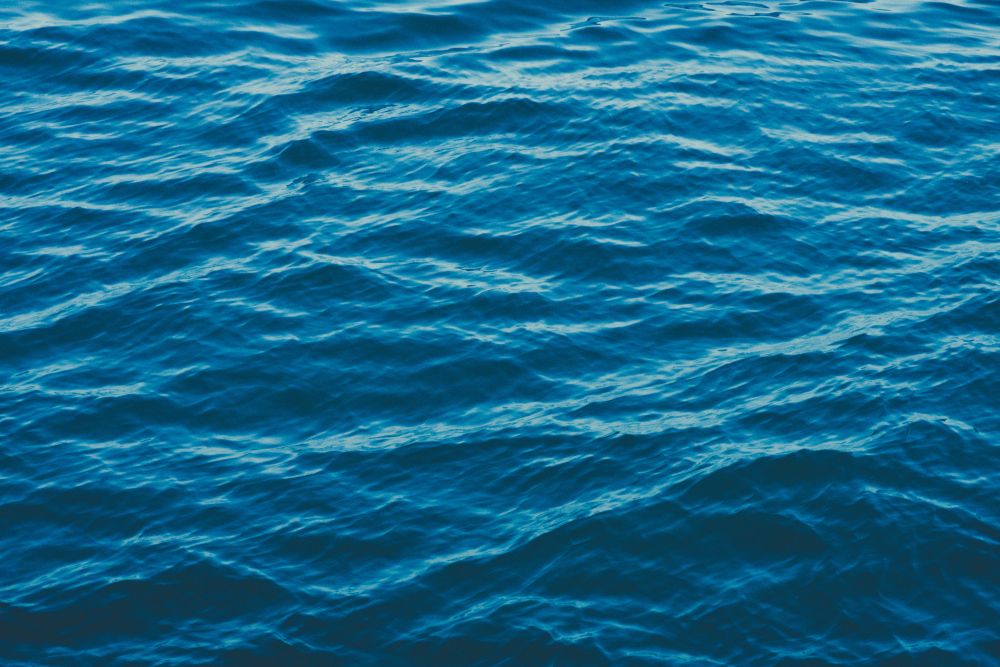

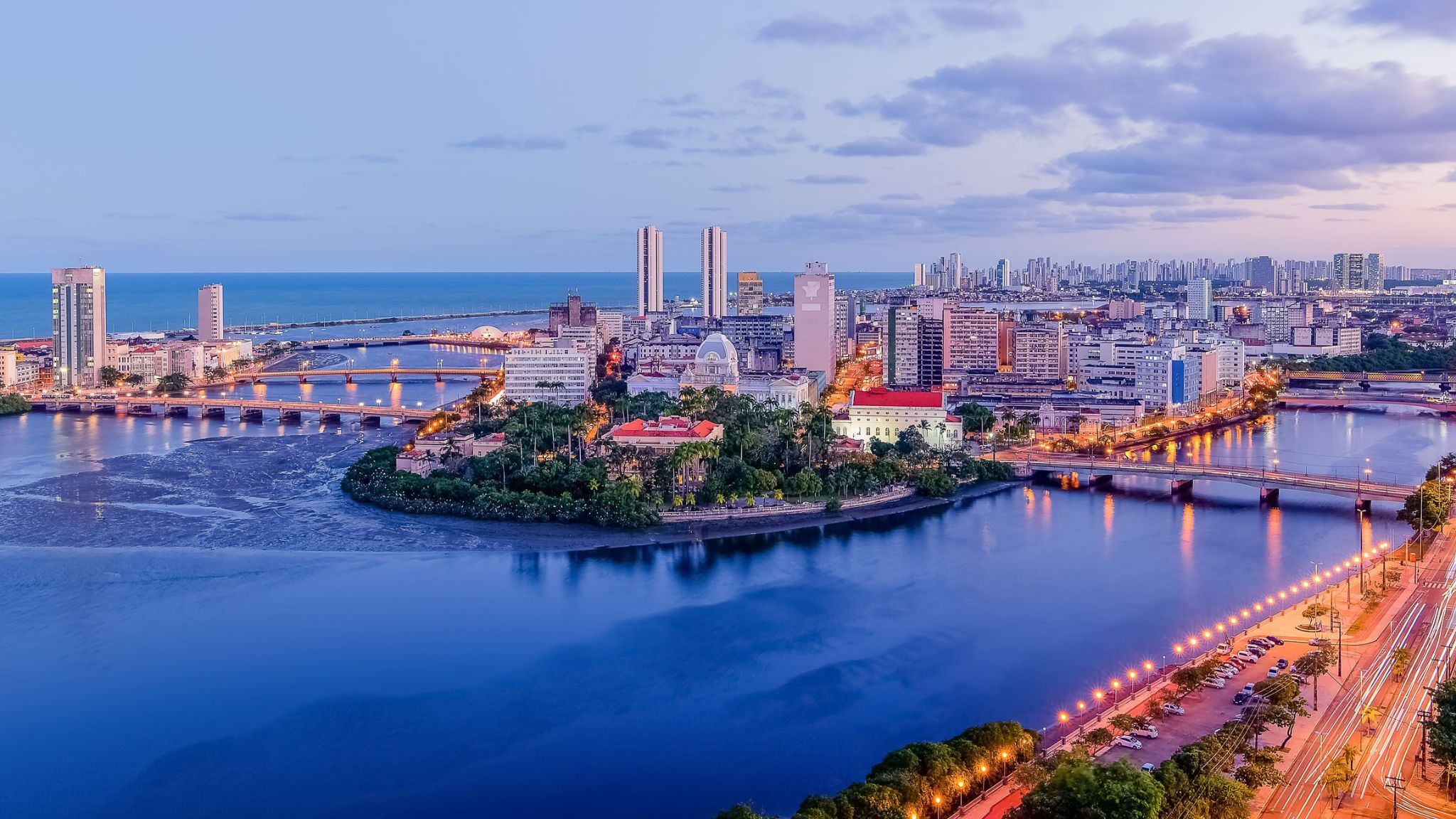
Recife: The Tropical Venice of Brazil
Recife, the capital of Pernambuco in northeastern Brazil, is known for its network of canals, bridges, and rivers, earning it the nickname “Brazilian Venice.” The city blends colonial architecture, modern skyscrapers, and vibrant culture, reflected in its carnival, frevo music, and maracatu rhythms. The historic district, Recife Antigo, preserves the city's Portuguese heritage through narrow streets, churches, and old buildings.
Recife is also famous for its beaches, especially Boa Viagem, where white sand and palm trees contrast with the urban skyline. Visitors can explore museums like the Ricardo Brennand Institute, with its collection of weapons and art, or visit the nearby colonial town of Olinda, a UNESCO World Heritage Site. It’s the perfect destination for those seeking cultural immersion, seaside relaxation, and the rhythm of vibrant Brazil.




White-sand beaches that appear and disappear with the changing water levels of the Amazon River make Alter do Chão a true natural wonder of Brazil. Located in the state of Pará, it is often called the “Brazilian Caribbean” for its crystal-clear waters, palm-fringed scenery, and soft sands. Visitors come not only for the beach experience but also for the charm of a fishing village where fresh fish dishes and jungle serenity await.
Alter do Chão is especially popular in September during the annual Sairé Festival — a vibrant celebration with traditional dances, costumes, and river parades. Adventure seekers can enjoy kayaking through flooded forests, spotting pink river dolphins, and exploring ancient archaeological sites. It’s a place where culture, nature, and the magic of the Amazon come together in one unforgettable location.
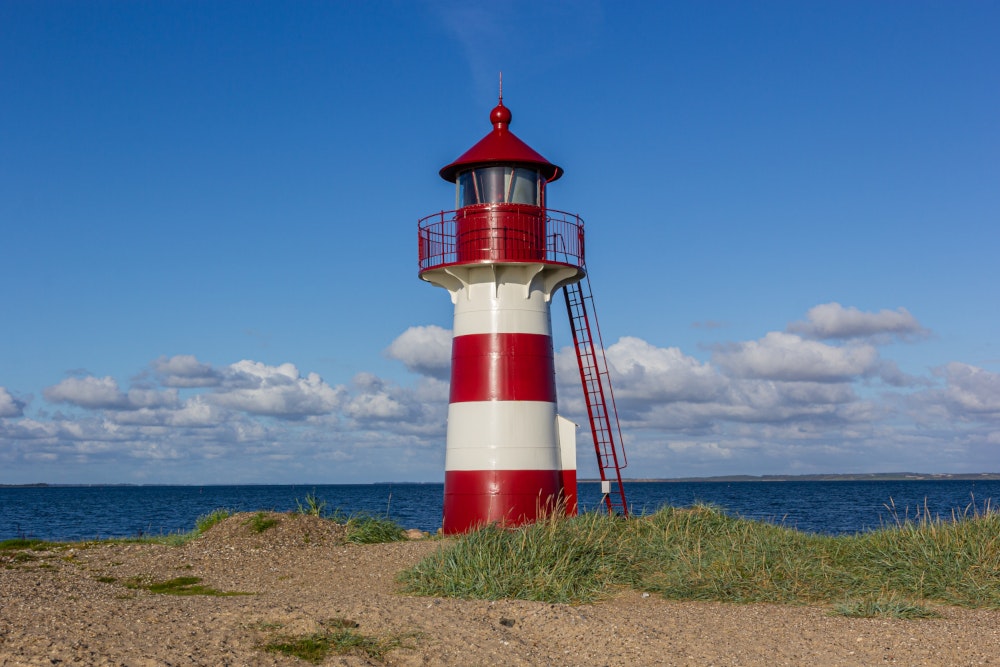
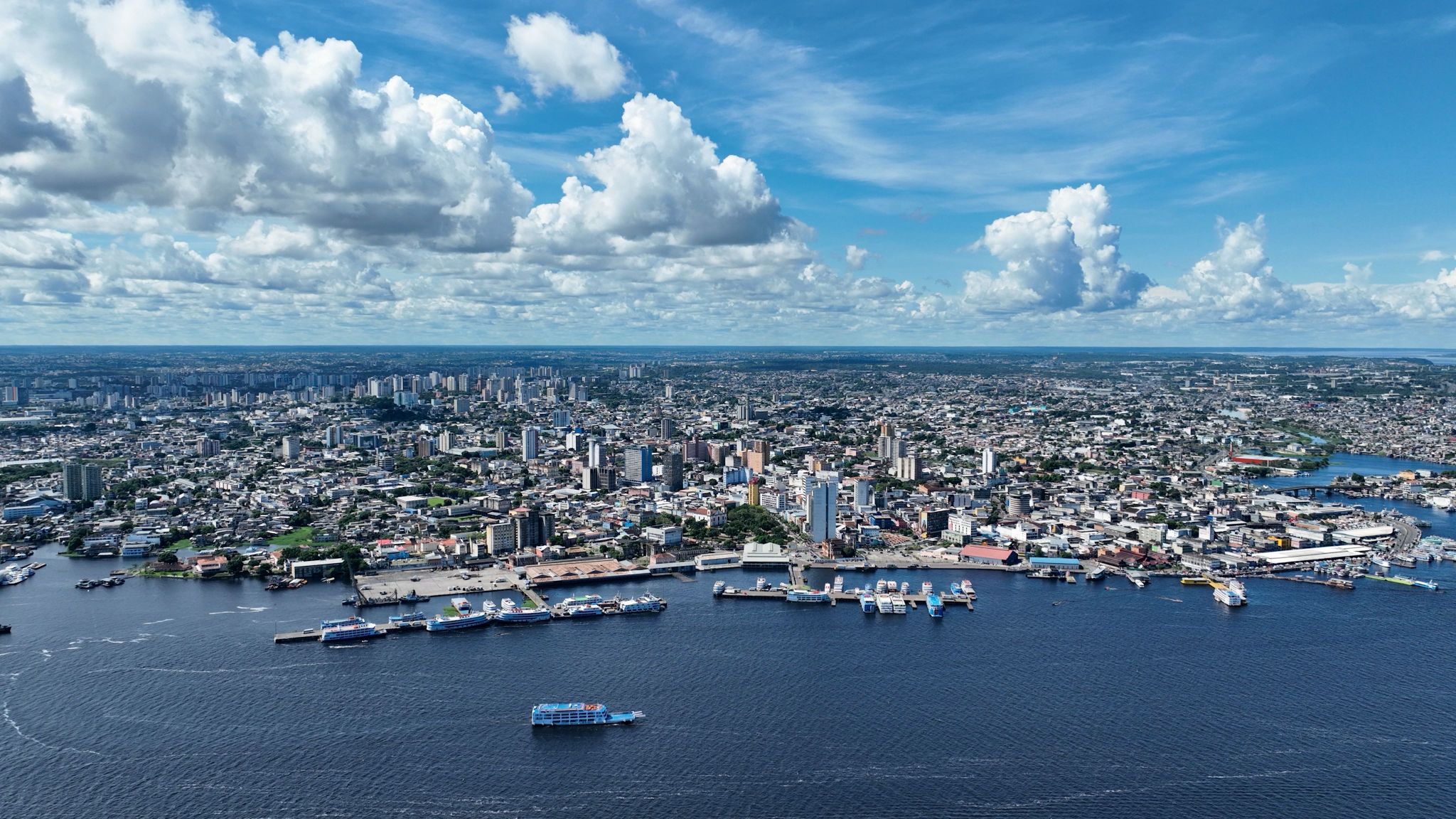
In the heart of the Amazon, where nature and history blend uniquely, lies the city of Manaus — the capital of the Amazonas state and the largest city in the region with over a million inhabitants. It gained fame during the rubber boom of the last century, when the luxurious Opera House was built in 1896 using materials imported from Europe despite the high costs. Surrounded by jungle on three sides, Manaus stands apart from European cities with its shaded streets, small parks, and traditional boot cleaners. Just a ten-minute walk from the city center, you can find palm-thatched stilt houses inhabited by indigenous families, offering a genuine Amazonian experience.
One of the city’s natural wonders is the "Meeting of the Waters." Here, the dark mineral-rich waters of the Rio Negro merge with the yellowish waters of the Solimões River to form the mighty Amazon. For about two kilometers, these waters flow side by side without mixing due to their temperature difference, creating a stunning natural spectacle. Manaus is considered one of the cleanest ecological cities in the world and is located just five hours by plane from Rio de Janeiro — a perfect starting point for exploring the amazing Amazon rainforest.

In the heart of the Amazon, where nature and history blend uniquely, lies the city of Manaus — the capital of the Amazonas state and the largest city in the region with over a million inhabitants. It gained fame during the rubber boom of the last century, when the luxurious Opera House was built in 1896 using materials imported from Europe despite the high costs. Surrounded by jungle on three sides, Manaus stands apart from European cities with its shaded streets, small parks, and traditional boot cleaners. Just a ten-minute walk from the city center, you can find palm-thatched stilt houses inhabited by indigenous families, offering a genuine Amazonian experience.
One of the city’s natural wonders is the "Meeting of the Waters." Here, the dark mineral-rich waters of the Rio Negro merge with the yellowish waters of the Solimões River to form the mighty Amazon. For about two kilometers, these waters flow side by side without mixing due to their temperature difference, creating a stunning natural spectacle. Manaus is considered one of the cleanest ecological cities in the world and is located just five hours by plane from Rio de Janeiro — a perfect starting point for exploring the amazing Amazon rainforest.
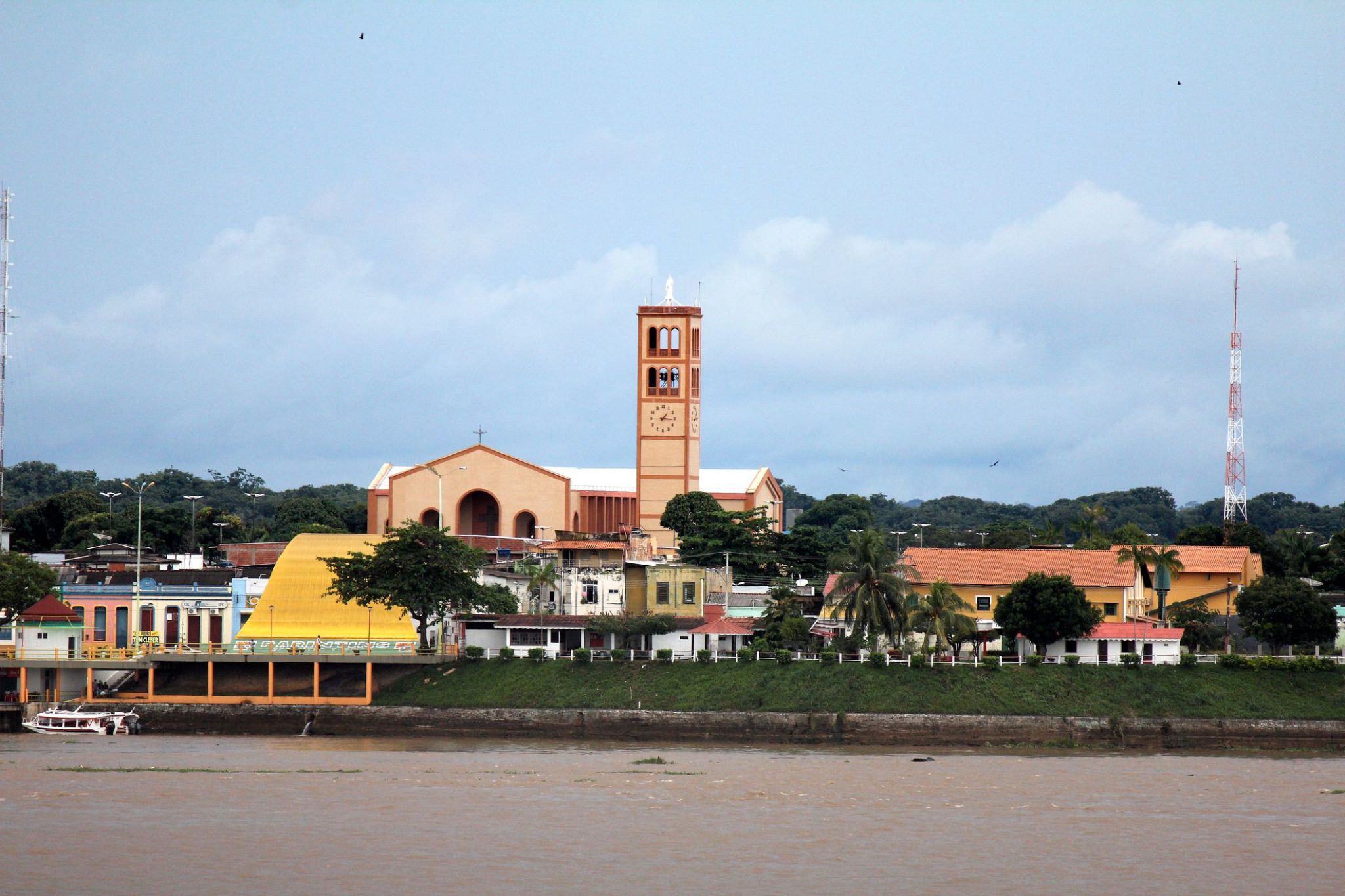
Surrounded by vibrant traditions and picturesque nature, the region on the island of Parintins offers a unique blend of cultural celebration and tropical wilderness. Every year, the famous Bumba-Meu-Boi festival takes place here, attracting thousands of tourists from around the world eager to immerse themselves in local legends, music, and dance. Additionally, the surroundings are rich with rivers and forests where visitors can enjoy walks and explore the abundant Amazon wildlife.
A trip to Parintins is an opportunity to discover not only the beauty of Amazonian landscapes but also the living culture of the Brazilian people. Small villages with friendly locals, traditional crafts, and cuisine create an atmosphere of coziness and authenticity. This is a place where every guest will find something special — from breathtaking natural adventures to unforgettable cultural experiences.
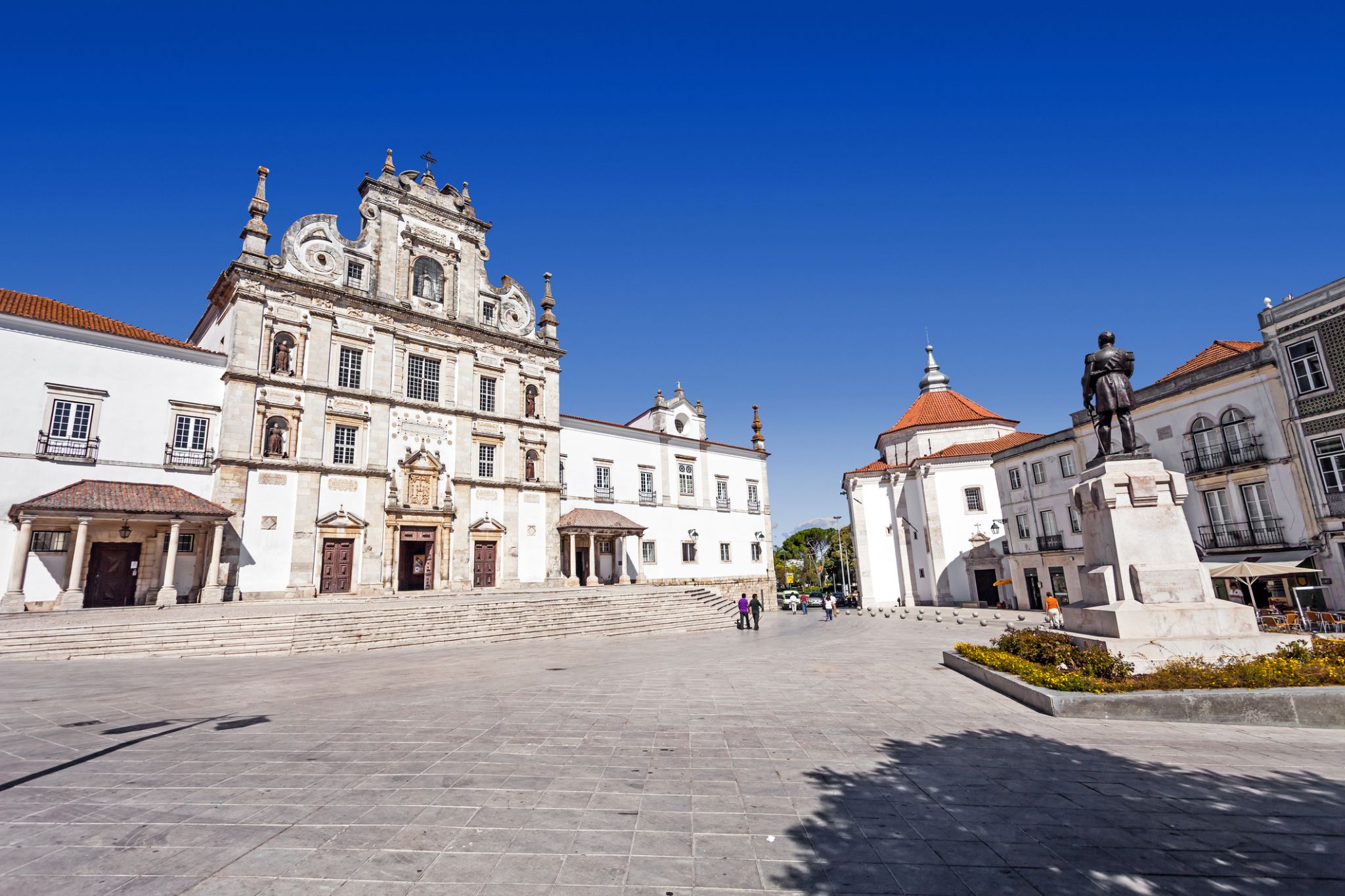



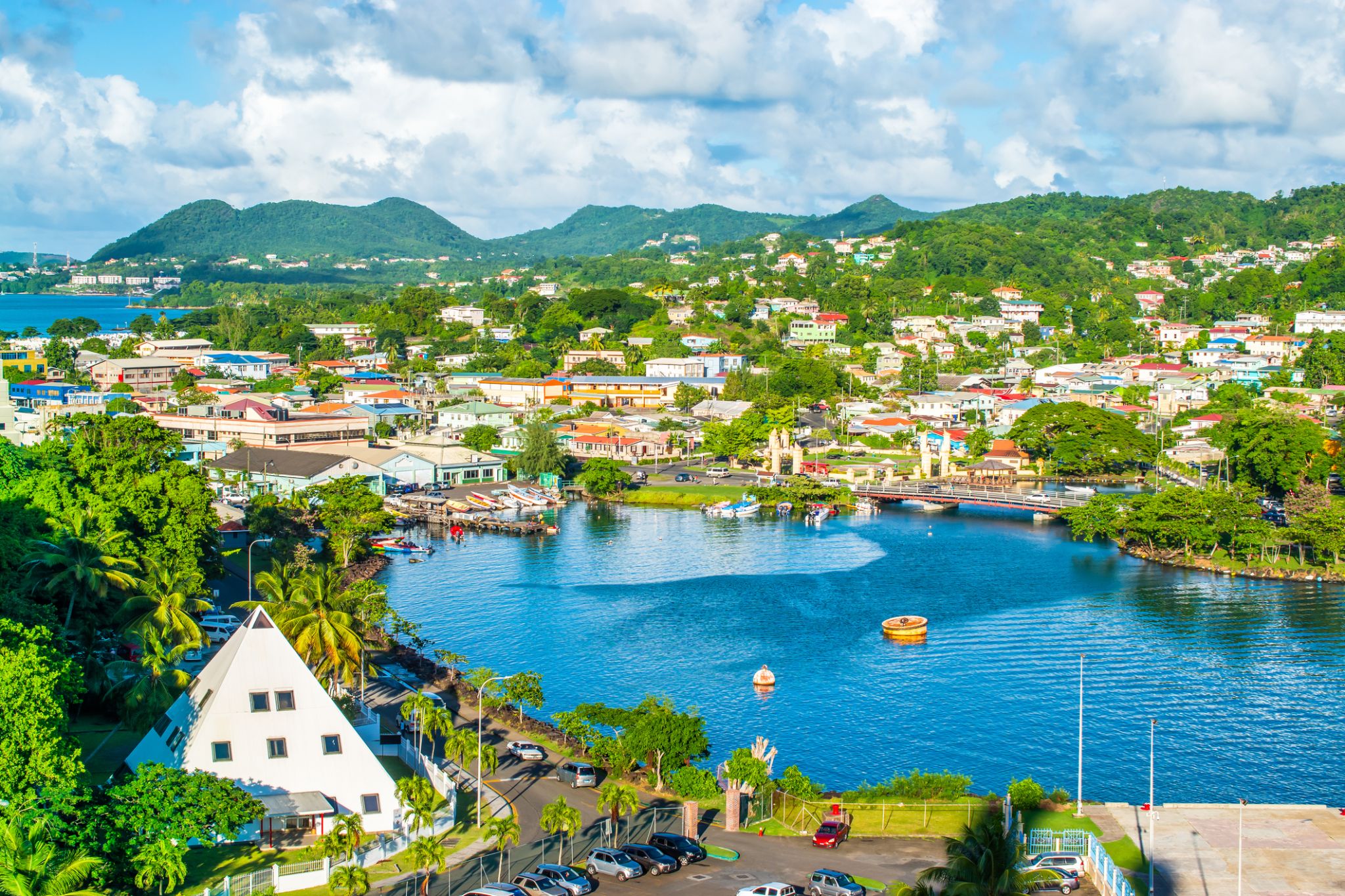
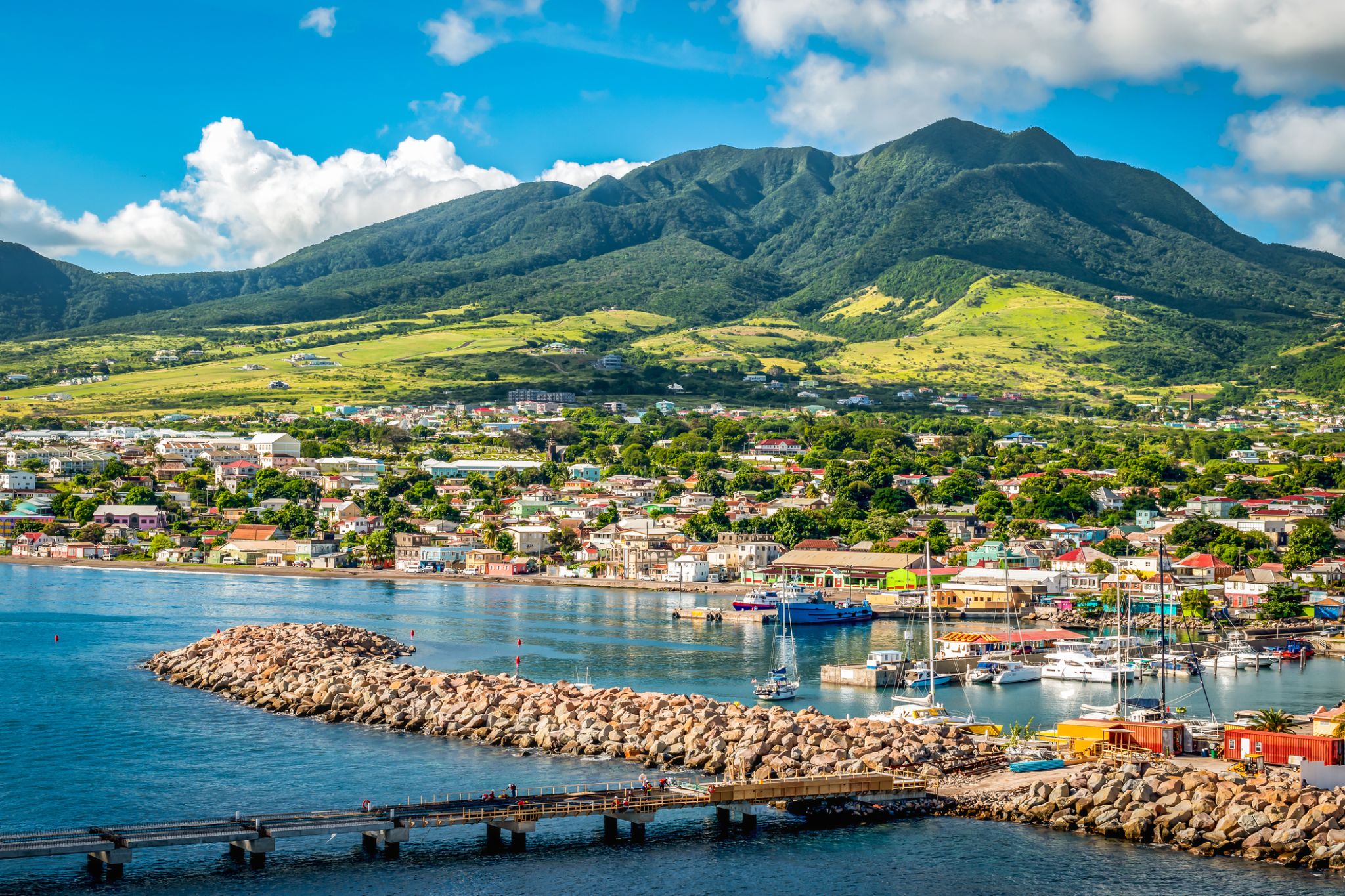


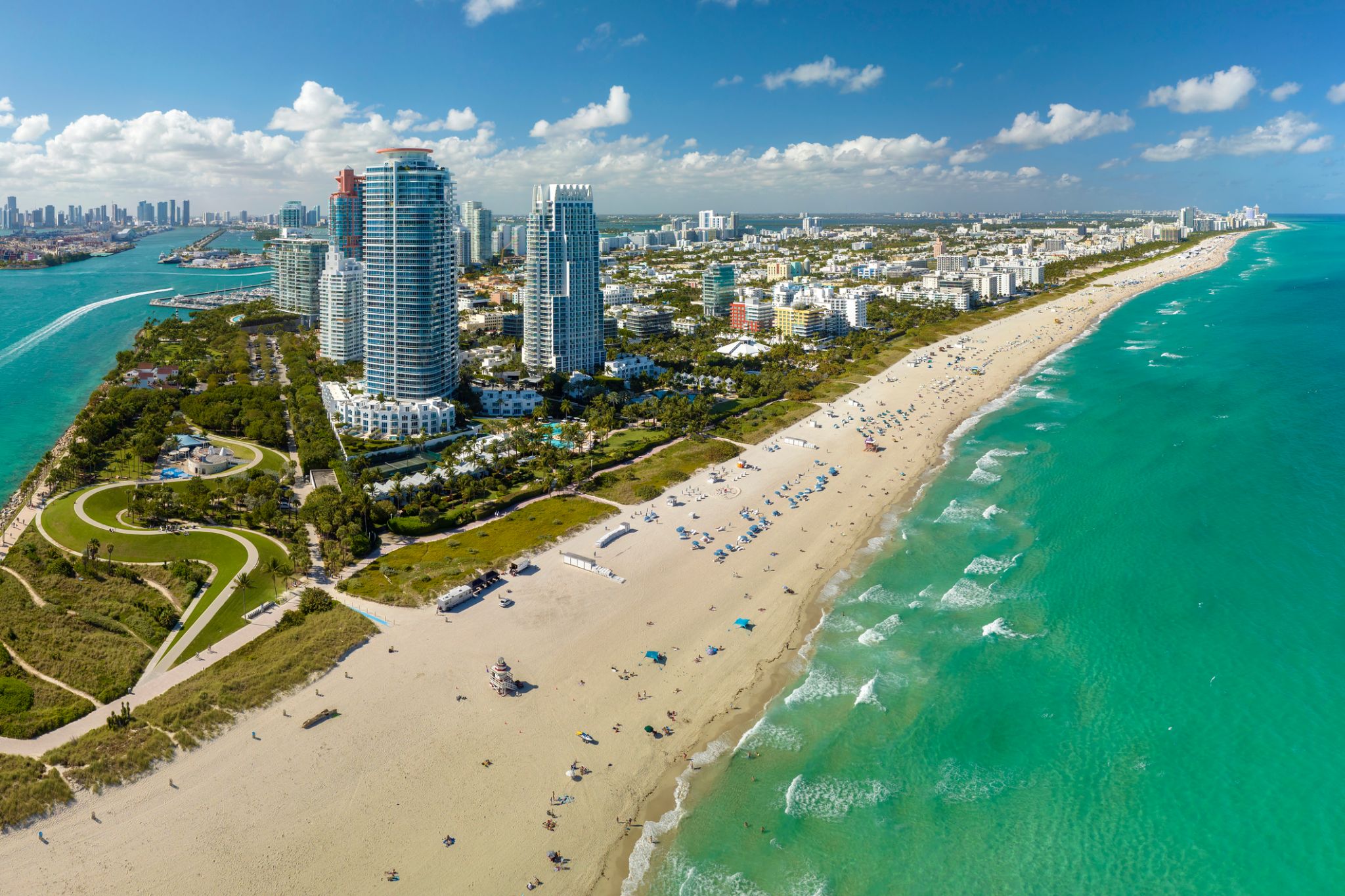
Miami, officially the City of Miami, is the cultural, economic and financial center of South Florida. Miami is the seat of Miami-Dade County, the most populous county in Florida. The city covers an area of about 56.6 square miles (147 km2), between the Everglades to the west and Biscayne Bay on the east; with a 2017 estimated population of 463,347, Miami is the sixth most densely populated major city in the United States. The Miami metropolitan area is home to 6.1 million people and the seventh-largest metropolitan area in the nation. Miami's metro area is the second-most populous metropolis in the southeastern United States and fourth-largest urban area in the U.S.
Miami is a major center, and a leader in finance, commerce, culture, media, entertainment, the arts, and international trade. The Miami Metropolitan Area is by far the largest urban economy in Florida and the 12th largest in the United States with a GDP of $344.9 billion as of 2017. In 2012, Miami was classified as an "Alpha−" level world city in the World Cities Study Group's inventory. In 2010, Miami ranked seventh in the United States and 33rd among global cities in terms of business activity, human capital, information exchange, cultural experience, and political engagement. In 2008, Forbes magazine ranked Miami "America's Cleanest City", for its year-round good air quality, vast green spaces, clean drinking water, clean streets, and citywide recycling programs. According to a 2009 UBS study of 73 world cities, Miami was ranked as the richest city in the United States, and the world's seventh-richest city in terms of purchasing power. Miami is nicknamed the "Capital of Latin America" and is the largest city with a Cuban-American plurality.
Greater Downtown Miami has one of the largest concentrations of international banks in the United States, and is home to many large national and international companies. The Civic Center is a major center for hospitals, research institutes, medical centers, and biotechnology industries. For more than two decades, the Port of Miami, known as the "Cruise Capital of the World", has been the number one cruise passenger port in the world. It accommodates some of the world's largest cruise ships and operations, and is the busiest port in both passenger traffic and cruise lines. Metropolitan Miami is also a major tourism hub in the southeastern U.S. for international visitors, ranking number two in the country after New York City.